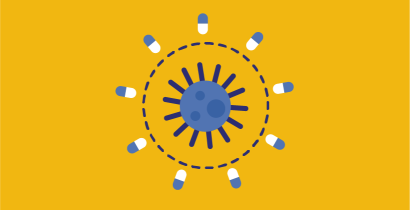Antimicrobial resistance

Antimicrobials, such as antibiotics, are substances that kill or stop the growth of microorganisms, such as bacteria and fungi. Antibiotics are specifically used to target the bacteria responsible for an infection or disease and are commonly used in veterinary and human medicine. However, the emergence of resistant bacteria due to continued, and sometimes indiscriminate, use of antimicrobials in humans and animals poses a serious risk to public health. The challenge is to minimise the threat from antimicrobial resistance and to ensure that antimicrobial effectiveness is preserved for health. For it, appropriate and responsible use of antimicrobials, including antibiotics, is urgently required by all.
What is being done to fight antimicrobial resistance?
21 November 2023Explore what European and international organisations are doing to tackle the rise of antimicrobial resistance (AMR).
Antimicrobial resistance (Q&A)
21 November 2023Antibiotic resistance represents one of the most significant global threats to health and food security in the world today. Overuse and misuse of these life-saving drugs have allowed bacteria to evolve defences against them at an alarming rate. If left unaddressed, antibiotic resistance could lead to a future where common human infections and minor injuries may once again be harder to treat. In this article, we will explore the topic of antibiotic resistance, seeking to understand how and why it occurs, how it impacts humanity, and what measures can slow its rise.

